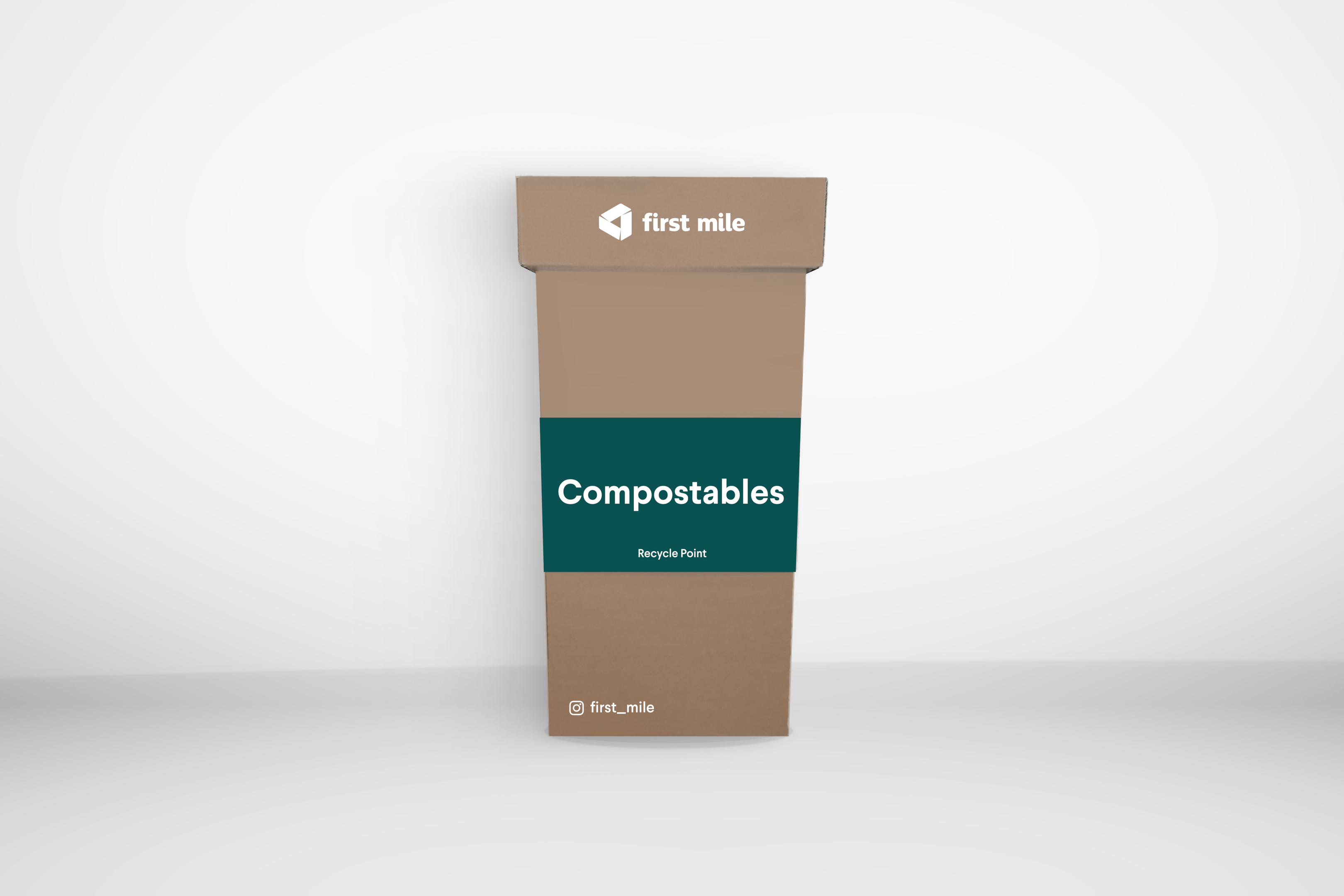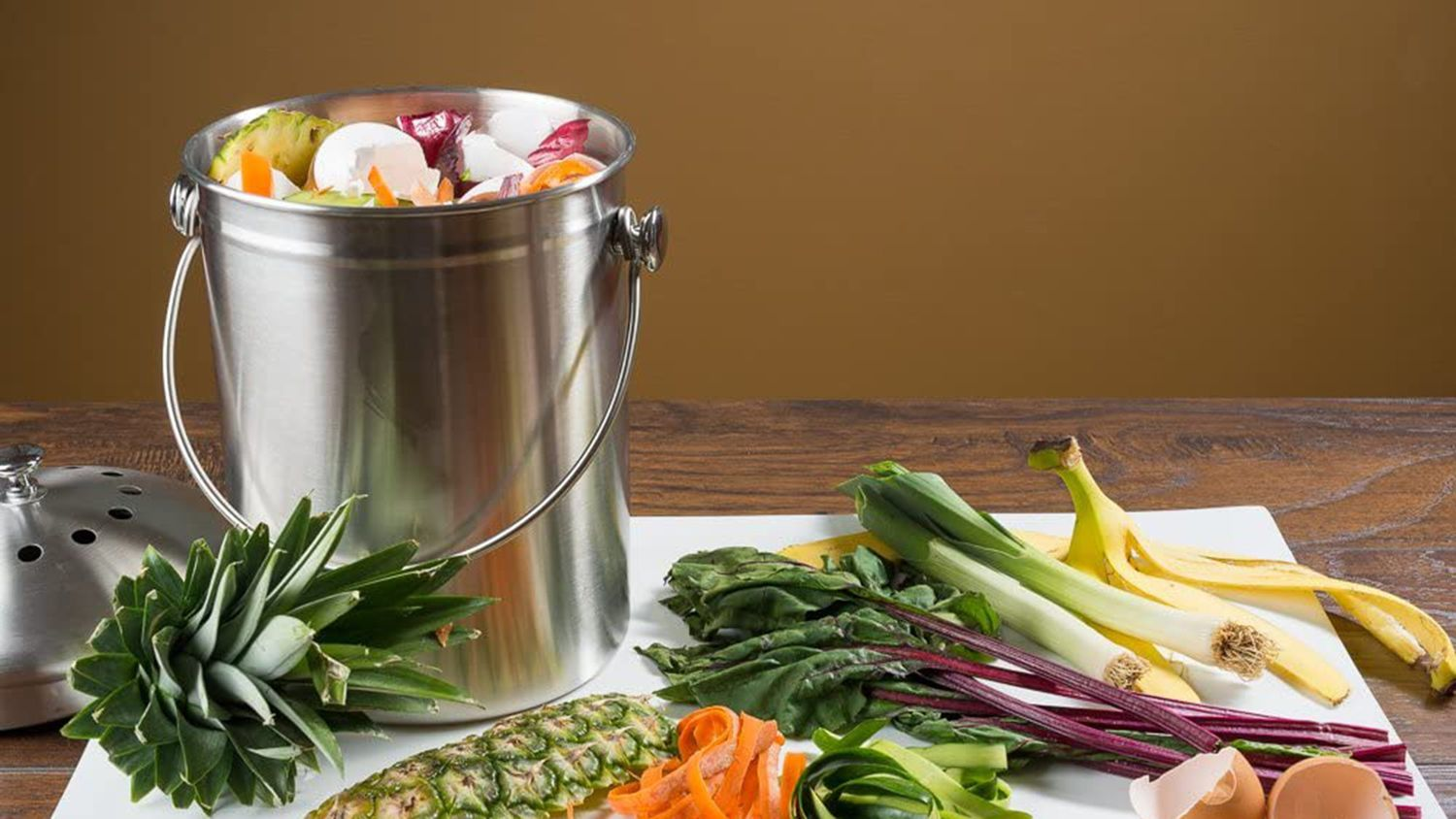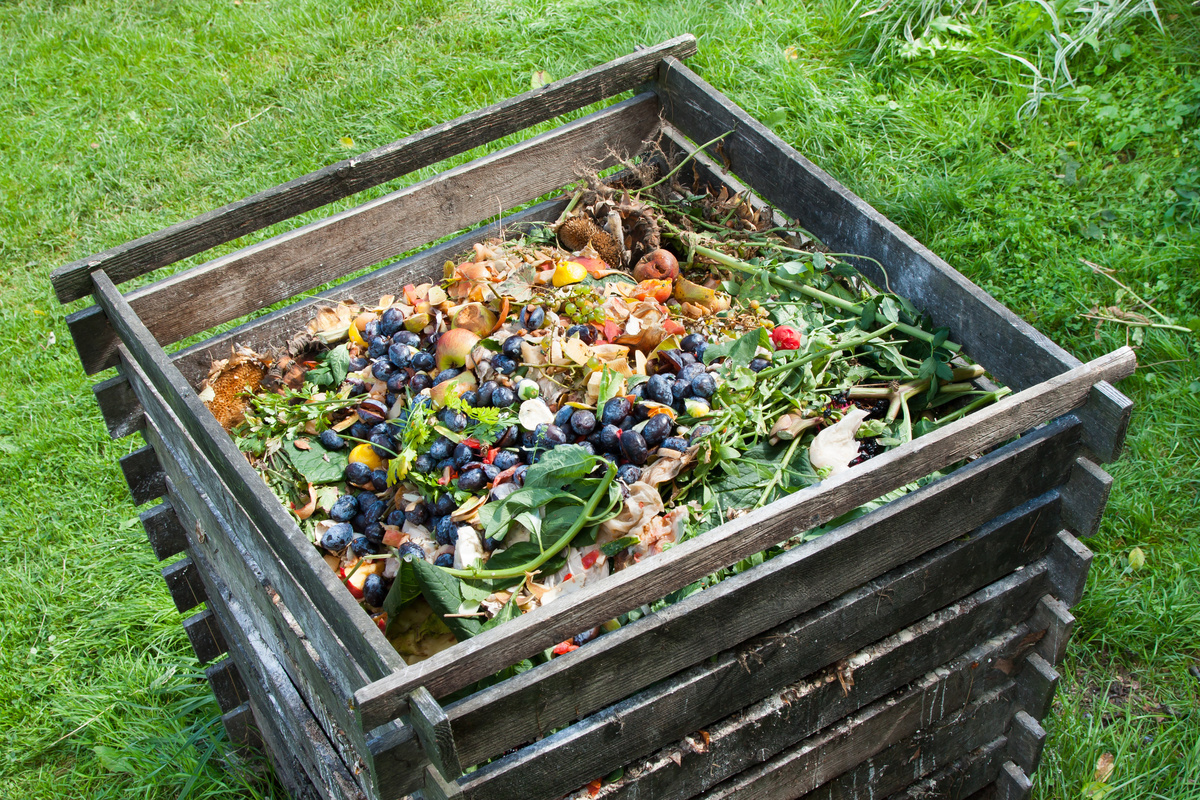It's been estimated that almost one third of the waste sent to landfill in the UK could be transformed into compost.
There are so many benefits to composting, and it's never been easier to do it as a household or business. To help, we've put together the ultimate guide to composting - what composting means, the benefits of composting and the different types of composting.
If you're a business, First Mile can support you with composting through food waste recycling and our compostable packaging Return and Recycle Points. Get in touch today and one of our friendly experts can help find the right solution for you.
What's meant by ‘composting'?
Composting is defined as ‘the act of collecting and storing organic material so it can decay and be added to soil to improve its quality'.
‘Nature's recyclers' are the bacteria and bugs that feed on dead plants and animals. By replicating this natural process, we can turn our organic waste into rich compost, instead of sending it to landfill.
What are the benefits of composting?
Composting has loads of benefits, both for our planet and our wallets. As well as reducing the waste going to landfill, it:
- Reduces methane, a greenhouse gas that's released by landfills
- Saves businesses money on waste-collection costs, click here to get a quote in minutes!
- Saves you money if you make your own at home
- Improves garden soil
- Helps soil retain moisture, reducing the need for watering
- Reduces the need for artificial fertilisers
- Promotes higher crop yields on agricultural land
- Improves soil contaminated by hazardous waste
- Saves resources, such as water and energy
No wonder farmers call compost ‘black gold'!
What's the process of composting?
The basic ingredients needed for successful composting are:
- organic waste (such as kitchen waste, newspaper, grass and woody materials)
- water
- oxygen
- chemical decomposers (e.g. bacteria or fungi) or physical decomposers (e.g. worms)
Combining these components triggers a natural process which goes through three stages: the mesophilic stage; the thermophilic stage; and the maturing stage. But, you don't need to understand the science or the long words to learn how to compost. You can (mostly) let nature do the hard work for you.
If you've ever noticed a compost heap steaming, you've seen the heat released when the decomposers are eating their way through the waste. As they reach the stuff that's harder to break down, their activity increases. This generates heat. Then, as they run out of food, the compost heap cools down again.
How do you start composting?
Making your own compost is much easier than you'd think. And the good news is that you don't need a huge garden to get into composting: you can compost indoors or outdoors. Even in a flat with no garden.
The first step is to decide where you're going to put your compost bin and then you can take it from there.
Workplace composting
By 2024, it will be mandatory for UK businesses to separate their food waste from other types of waste. The good news for businesses is that food recycling is cheaper than a general waste service, and your food waste can be sent off to become compost.
First Mile makes food recycling as easy as possible, and can save businesses up to one third of the cost of their waste management. We guarantee that no waste will go to landfill because all our food waste is recycled into renewable energy and fertiliser.
We also offer a dedicated Compostable Packaging Collection service. Compostables can't be placed into mixed recycling as they often contaminate other materials and clog up machines. They also don't belong in food recycling as they require a different composting process.
Click here to book your Food Recycling Collection or get a tailored quote that suits your business needs. You can also order a Compostables Return and Recycling point today that will enable your staff or customers to recycle more.
Compostables Return and Recycle Points

What is compostable packaging?
There are now compostable alternatives to plastic packaging from companies such as Vegware and decent packaging. These companies are using compostable solutions to tackle plastic waste pollution and to help businesses and consumers to be more sustainable.
It can be confusing to recognise the difference between compostable and biodegradable packaging.
The definition of biodegradable products is anything that's ‘able to decay naturally and in a way that is not harmful'.
If packaging is labelled ‘compostable', that means it's been certified to biodegrade under specific conditions, such as within set timeframes or at certain temperatures. It won't produce toxins as it deteriorates and its end product provides fertiliser for the earth.
You can find out more in our previous blog post on the differences between recyclable, compostable and biodegradable packaging.
How do you start composting at home?

It's easy to sign up for food-waste collection with your local council so that your kitchen and garden scraps can be recycled. But it's also surprisingly easy to make your own compost and benefit from free fertiliser for your garden and/or pot plants.
Luckily, there are lots of easy composting methods suitable for small spaces.
Kitchen composters are easy-to-use compost bins specifically designed for indoor use. Just throw in some kitchen scraps – such as your vegetable waste – and later you'll be rewarded with your own compost.
Or, if you're feeling creative, you can make your own. Like this DIY kitchen compost bin.
Keep your compost bin somewhere dark, like under the kitchen sink. Add fruit and vegetables (but avoid diseased or pest-laden ones), nuts and grains, coffee grounds, tea bags (if they're made from biodegradable, compost-safe materials) ,egg shells, dry leaves and wilted plants, paper towels and shredded paper.
You can only add organic materials, so that means no plastic, metals or glass. The following also can't be added: cooked food, raw meat including bones or fish, dairy (milk, cheese, yogurt, etc.), any kinds of grease or oils, diseased plants, cat or dog waste and nappies.
Make sure you add newspaper or shredded toilet paper rolls to your compost bin. This is the ‘brown waste' that's needed to produce good compost.
The Takakura Method is perfect for anyone who lives in a flat. It makes small amounts of compost and you only need small boxes. It's ideal for composting food scraps. Plus, it offers a quicker composting time and it's not smelly. If you fancy a go, you can find video instructions here.
Alternatively, if you're feeling flush and think making your own compost sounds like too much work, you could buy an automated composter, such as Lomi or the Tero food composter.
Garden composting

Setting up a compost heap in your garden is the most environmentally friendly way of dealing with your kitchen and garden waste. It's also great for wildlife, providing a refuge for bees, hedgehogs, worms and bugs.
How do you start garden composting?
- Make a heap or choose a container and position it in a sunny part of the garden.
- Add layers of brown materials (e.g. straw, twigs, dry leaves) followed by layers of green (e.g. fruit and veg' scraps, coffee grounds, grass). Aim for 25 to 50% green. Add a little water if the materials are dry.
- Cover the compost. Check it regularly and add water if it's drying out. If the heap starts getting warm and steaming, this is a good sign.
- Turn the compost regularly so that it's getting plenty of air. It's OK for the layers to get mixed up.
- Be patient! It can take from six months to two years for the mixture to mature into compost. Look for it turning dark brown or black and having a crumbly texture. Then you can mix it into your soil and watch your garden bloom!
You can make your own container or buy one. Choose the best one for your needs, read up on making garden compost and you'll be producing ‘black gold' for your garden in no time at all.
Is cow dung a good fertiliser?
Cow dung will provide five-star treatment for your garden soil. After all, farmers have been using it successfully on their land for generations. You can even use it on your pot plants.
Is it worth buying worms for compost?
The fancy name for this is ‘vermicomposting'. Earthworms (especially red wigglers and redworms) make excellent composters because they're nature's recyclers. They live off any organic matter that's starting to decompose, transforming organic waste into ‘castings' that make an extra rich fertiliser. And you can use worm bins indoors or out. Read more about worm farming here.
You can even compost human waste with worms: compost toilet systems use earthworms to process the waste. In some places, vermicomposting toilets are saving lives: OXFAM is installing them in deprived urban and rural areas, as well as refugee camps.
If you're interested in finding out more about our services, contact us for a quote today.



